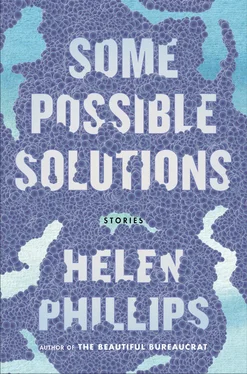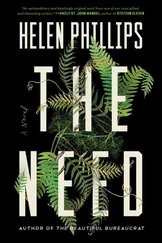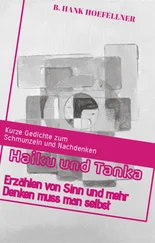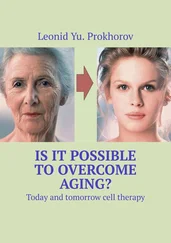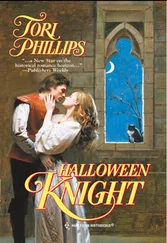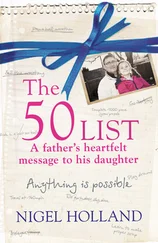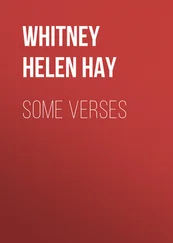“The zombies are playing awful hard tonight, aren’t they?” she said, pointing toward the playing field where the green grass was beginning to freeze over. They ran back and forth across it, a smear of great brightness in even greater darkness. I listened to their voices, screams of victory and screams of defeat. Even from this distance it was possible to see the blue tinge to their skin. I shivered; she could read my mind.
The train screamed its way into the station, drowning out the sounds of the soccer-playing zombies. The bleeding girl said one last thing to me, though I will never be sure, because the train was screaming right beside us: “You always give something up to get something else.”
When the doors of the train opened I rushed into the car ahead of the one she boarded. We could not be together for another second. Yet I knew she was there, standing at the front of her car, looking through the windows, staring at the back of my neck. I forgot to mention that I’d noticed a tattoo on her neck. A gray smear of something anatomical, an anatomical heart or plant or something.
A train passed on the track beside us, another outbound train, going slightly faster in the same direction. The sign read OUT OF SERVICE and as the train pulled ahead of us I observed that there was nobody on it except in one car a figure in a blue uniform. This person was wearing a blue winter hat and I stared hard, trying to figure out if the hat was part of the uniform or if the employee had done a very thorough job matching the hat to the uniform. Then, as he turned his head, I saw that the figure in the uniform had the face of a wolf. The wolf gave me a glimpse of his face, not meeting my eyes, and then turned back to his original position. Did he give half a nod to someone in the car behind mine?
But when I twisted around to check, I was shocked to discover that she wasn’t standing at the window as I had pictured.
There were only four other passengers in my car, afloat in sleep. No one had seen what I’d seen, and I did not scream.
* * *
Just then asmall bubble of blood emerged from deep inside me. It appeared on the cusp, beneath my underwear beneath my jeans, and quietly popped. The sound of a minuscule kiss. Followed by a brief yet definite rush. By the time I got off the train at my stop I was crying with gratitude. My face wet. I walked into November. A car that in another life would have accelerated through the yellow stoplight and killed me did not accelerate and kill me. Alive and bleeding, I arrived at my doorstep to find that his name had been rubbed off the tag beneath our doorbell.
People and things are disappearing in the city. These people are girls between the ages of eleven and seventeen who have not yet been stiffened by life in skyscrapers, who have not yet donned the hood and trousers, who, in a different era, would have been milkmaids, weavers, beekeepers. These things are objects the aforementioned girls have used. A brush, for instance, containing loose strands of hair. Bedsheets slept between, bath towels wrapped around, slippers slid into. Pencils gnawed upon, notebooks written in, magazines flipped through. A spoon used to eat soup, a fork used to shovel food, a knife used to spread or to cut.
This is why, notwithstanding the dangers one may encounter outside the city, Maebh’s parents are sending her to The Farm, and have ordered me to go with.
* * *
“If you hadto choose,” Maebh says, “which would you hate least: to have spiders crawling all over you, or rats, or snakes, or frogs, or bees?”
She sticks her skinny leg out the window of the car — yes, the car — which I am steering through the countryside — yes, the countryside — past the orchard — yes, the orchard. It is hot late afternoon and fragrant with rotting fruit. A circumstance unimaginable to anyone from the city. Unimaginable to me three days ago. I feel drunk.
“I do not know,” I say. She has been asking me these kinds of questions throughout the entire journey; I do not think she is cruel, and I do not think she intends to highlight the vast differences between us, but still she is constantly doing so. Unlike her, I have not been to The Zoological. I do not know what a spider is, not really, nor a rat, nor a snake, nor a frog, nor a bee. In the city we do not have such exotic creatures. I have only seen moving pictures of these animals.
“Come on,” she says, flicking her pearly toenails against the side-view mirror. “You gotta pick one. Spiders, rats, snakes, frogs, or bees?”
“Rats,” I say. “Because they are mammals.” This, at least, is a fact I have learned.
“Hm,” she says. “Good point.”
At times, she sounds nearly thoughtful. She brings her leg back into the car, wraps her arms around her knees, and crouches on the seat. I have already told her to buckle up; she has already refused.
“I’d choose bees,” she says. “Definitely bees. Easy.”
“But they sting,” I say. Again, a fact I have learned.
“They make honey,” she says. A fact I once knew but forgot; upon being reminded of it, I wish I too had chosen bees over rats, but this is not the sort of thing one confesses to a girl like Maebh.
* * *
At The Farm,there are many bees. They are large and fuzzy. They wander dazed among the wild grapevines that have netted Main House, among the waist-high grasses in the yard (well, waist-high for me and thigh-high for Maebh), among the unknown fruits that dangle off the trees with bronze bark. Maebh tells me these are called plums and laughs at me for not recognizing them.
“They’re what prunes come from! You didn’t know that?”
The sun itself is like honey here, thicker and more orange as the August afternoon matures. I am surprised to find that I can sit on the porch in a rocking chair, relaxing into the heat and the smell of orchards, without fear. I would not have guessed that I would be capable of forgetting about the dangers; I have never before left the city. I have never before encountered “pollen” (the word Maebh uses for the soft dust), nor a stream of water like the one that runs behind Main House. I have seen streams of hot chocolate in the grand supermarkets, and streams of beer in the pubs, but never this, clear and lazy, with small colorful stones on the bottom.
Maebh lies down on the sun-soaked floorboards of the porch. She tells me she is filled with nostalgia. I am not surprised — I am only surprised that she has such a word in her vocabulary — because as we were leaving the city this morning her parents told me they used to bring her here every summer when she was a very young child, in the years before the dangers.
Suddenly she jumps up and steps through the tall grass toward the stream. I watch from the porch. She kneels and slaps water all over her face, shrieking with the cold of it. Then she starts to unbutton her blouse and wiggle out of her jeans. Is she going to — bathe? — swim? — dive? Showering, that’s how I’ve encountered water.
Maebh turns back to look at me. I am trying to not look at her. She re-buttons her blouse and re-zips her jeans.
“Later,” she says. “I’m hungry now. I’m thirsty. Wanna drink milk?”
The house has been provisioned by an old farmer and his wife. Maebh’s parents deposited an unnecessarily large sum into this farmer’s bank account and told him to make sure we have food until the disappearances cease, or until Maebh heads back to boarding school in Japan come September.
There is milk in the refrigerator — yes, a real refrigerator, pale green with rounded edges, which wheezes and thunks all day long — and a huge circular loaf of bread on the table, and four jars of preserves. I read the labels: apple, okay, pear, okay, plum again, the source of prunes, apparently, and gooseberry. Gooseberry! Well, I can at least guess what that is; I am familiar with strawberries and blueberries. Maebh finds two old jam jars in the cupboard and pours milk into them. It is pleasant to watch her pouring it. I ought to be pouring milk for her. She hands me my milk and we carry everything out to the porch.
Читать дальше
